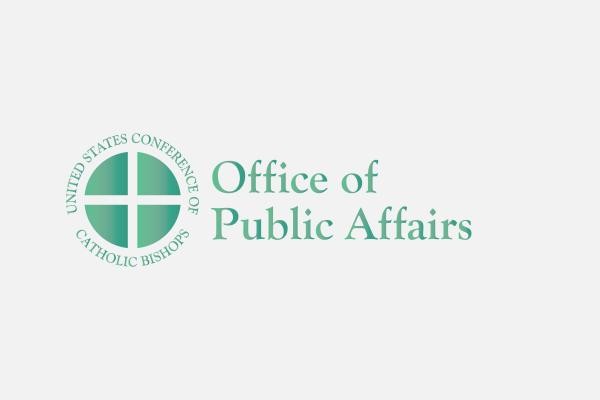Mid-Atlantic Muslim-Catholic Dialogue Continues Work on Interreligious Marriage Document
WASHINGTON (May 24, 2005) --The Mid-Atlantic Regional Muslim-Catholic Dialogue gathered for a working session on marriage at Immaculate Conception Center, Douglaston, NY, May 4 and 5, 2005. The co-conveners were Bishop Ignatius A. Catanello, Auxiliary Bishop of Brooklyn, and Dr. Khurshid Khan of the
WASHINGTON (May 24, 2005) --The Mid-Atlantic Regional Muslim-Catholic Dialogue gathered for a working session on marriage at Immaculate Conception Center, Douglaston, NY, May 4 and 5, 2005. The co-conveners were Bishop Ignatius A. Catanello, Auxiliary Bishop of Brooklyn, and Dr. Khurshid Khan of the Central Majlis As-Sura in Jamaica, NY. The USCCB Secretariat for Ecumenical and Interreligious Affairs was represented by Fr. Francis V. Tiso.
Beginning in 1998, this dialogue group had undertaken a discussion of marriage and family life. Participants made arrangements to pursue the themes of the regional dialogue on the local level, setting up dialogues between Catholics and Muslims in parts of New York, New Jersey, and Pennsylvania. The work of the group was interrupted by the need to respond to the tragic events of September 11, 2001 by exploring the relationship between religion and violence.
In 2004, the dialogue group returned to its study of marriage with the goal of producing a common document that would present Muslim and Catholic teachings on marriage in the light of the challenges that our communities face in the contemporary situation. In addition, special attention would be given to the question of marriages between Catholics and Muslims. A number of chapters, based on previous dialogue sessions and the contributions of experts, were produced in 2004. In the course of 2005, these were critiqued by participants and their communities. It was decided to proceed with a document that would not only be an accurate presentation of Muslim and Catholic teachings on marriage and family life, but would also contribute to strengthening married life in our respective communities. The drafting committees found that they needed to situate the Catholic and Muslim experience of matrimony within the social and cultural matrix of contemporary US society. During working sessions the following chapters were drafted and/or edited:
Introduction, surveying the context, history, and purpose of the document. Principal editors were Sr. Josephine Kase, IHM, of the Archdiocese of Philadelphia, Fr. Philip Latronico of the Diocese of Newark, and Muhammad Tariq Rahman of the Islamic Circle of North America.
The religious basis of marriage; religious law and marriage; rituals of marriage. Drafters included Fr. Francis Tiso and Imam Hamad Ahmad Chebli of the Islamic Society of Central New Jersey, basing their efforts on previous contributions by Dr. John Borelli, now of Georgetown University, and Dr. Richard McCord of the USCCB.
Concerns related to Family Life: Roles of men and women in family and society; values regarding children; pastoral concerns and religious practices in the home. Drafters included Br. David Carroll, FSC, of the Catholic Near East Welfare Association and Dr. Sheikh Ibrahim Negm of the Islamic Center of South Shore,
The impact of society and social change on the family, studied by Rev. Msgr. Donald Beckmann of the Diocese of Rockville Centre and Dr. Esmet Kamil of Pratt Institute.
Catholic and Muslim views on interreligious marriages, including pastoral guidance and ritual aspects, drafted and developed by Fr. Thomas Ryan, CSP, and Dr. Esmet Kamil.
Appendices: On the process and principles of interreligious dialogue; Bibliography
Teams worked on and critiqued the drafts in the course of the two-day meeting. Final drafts of the chapters are to be shared during the coming summer, with the goal of producing a document satisfactorily representing the views of the participants by the end of 2005.
A strong consensus has been evident in this dialogue group for several years. Catholics and Muslims together affirm that marriage is a blessing from God, situated in the order of creation as a natural relationship between a man and woman. They also believe that family relationships woven together in matrimony provide an environment in which faith and the moral life of the virtues may flourish. The family is the basis for the transmission of essential spiritual beliefs and moral practices. Since the family is the basic unit of society, a healthy and ethical family is the basis for a just society. Holding similar views on marriage and family life, Muslims and Catholics can enrich, strengthen, and encourage one another in working together to testify to shared values before the wider society.
An informative visit to the Muslim Center of New York in Flushing, Queens, allowed participants to discuss related topics of concern, to share a common meal, and to experience evening prayer in the mosque. The conversation took up such concerns as ways of enhancing cooperative efforts between Catholics and Muslims on the local and regional levels; the problem of anti-Muslim discrimination; the need for Muslims to reach out to other groups in the neighborhood; ways moderate voices within the Catholic and Muslim communities can be mutually supportive especially in education and in the mass media; and the political basis for the current impasse on immigration.
Participants this year included Bishop Nicholas DiMarzio of Brooklyn, who attended the final luncheon. Other members of the dialogue group include: Rev. Msgr. Donald Beckmann, Muhammad T. Rahman, Younas Shahid, Dr. Esmet Kamil, Br. David Carroll, Sr. Josephine Kase, Fr. Francis X. Mazur, Imam Ibrahim Negm, Dr. Khurshid Khan, Imam Mohamed el Filali, Fr. Philip Latronico, Imam Hamad Ahmad Chebli, Fr. Francis V. Tiso, Fr. Thomas Ryan, Nashar Khan, and Bishop Ignatius Catanello.
The next meeting of the Mid-Atlantic Regional Dialogue of Muslims and Catholics will take place on March 8 and 9, 2006 at the Immaculate Conception Center. The goal of the meeting will be to complete the document on marriage, to integrate new members into the dialogue process, and to assess future topics.

